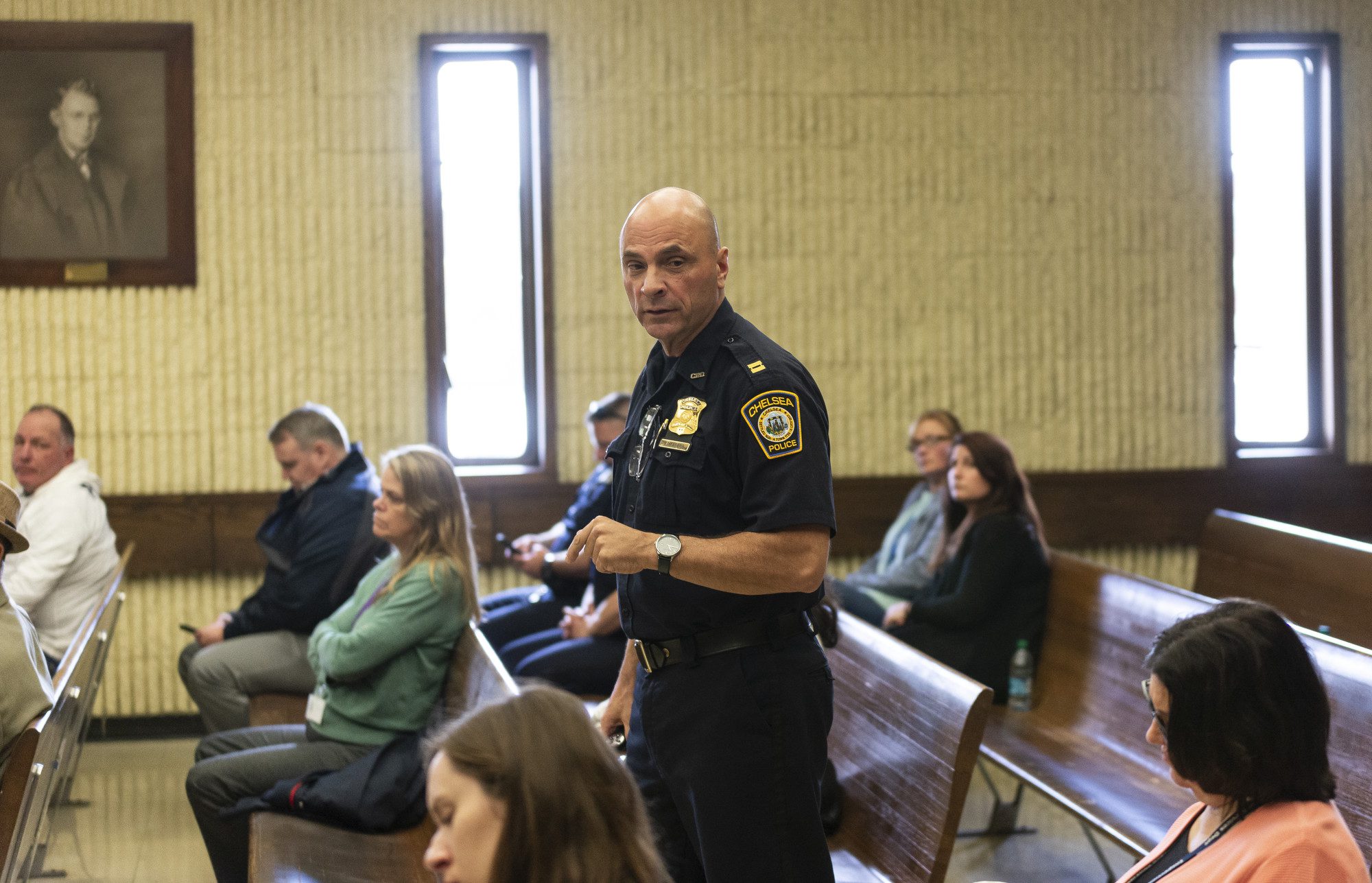LYNN — The city’s police, community agencies and Lynn District Court are coming together to adopt a crime-reduction “hub” model focused on providing services to at-risk individuals before tragedy occurs.
The cooperative model is based on Chelsea Hub, a coalition of agencies that meet once a week to share information about individuals and families dealing with challenges such as mental health issues, homelessness, substance abuse, addiction, and poverty.
The goal is to intervene before something bad happens, rather than waiting to respond and help after a 911 call comes in. The Hub is meant to help people dealing with challenges difficult enough that support from multiple agencies is needed.
“Incarceration is not always the answer,” said Judge Matthew Nestor. “When you get different people in the same room with a goal of helping people, it makes a big difference.”
Nestor hosted a training and informational session for potential partners in Lynn District Court on Wednesday. The session was conducted by Chelsea Police Capt. David Batchelor and Daniel Cortez, coordinator of the Chelsea Hub and community engagement specialist for the Chelsea Police Department.
Nestor said he was the presiding judge in Chelsea District Court for five years before moving over to Lynn District Court and saw the benefits of how the program helped people.
“It’s been very successful in Chelsea and we hope it will be very successful in Lynn,” said Joseph Furnari, Chelsea site director of Roca, an organization that seeks to break the cycle of incarceration and poverty. Roca served as one of the founding members of the Chelsea Hub.
Chelsea was the first municipality in the United States to adopt the model, which is based on a program developed in Canada. Lynn would join seven Hub models in the state, which includes East Boston, Springfield and Worcester.
Hub meetings will start in Lynn District Court within the next month. There’s no cost to implement the program; all providers will be paid by their own agencies and employers for their Hub services, Nestor said.
Batchelor said before the Hub was implemented in Chelsea, the police department would do a good job of responding to the scene after something negative happened, but had to piece together the causes and needs of the individuals involved after the fact. The Hub is focused on prevention, along with creating community well-being and safety before it gets to that point.
“We’re trying to get upstream before something bad happens,” Batchelor said. “Why are we waiting for something bad to happen? Why not try to provide services before that call comes in?”
Cortez said mental health is the biggest risk factor that the Chelsea Hub deals with, followed closely by homelessness and addiction.
“We figure out how to get to the root cause of why people are struggling,” Cortez said.
The program is “about helping one person, one family at a time,” Batchelor added.

